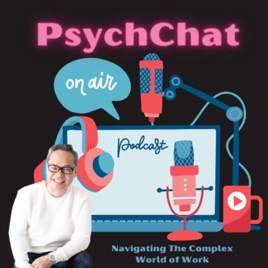
Advertise on podcast: PsychChat
Rating
5 from
Country
This podcast has
42 episodes
Language
Publisher
Explicit
No
Date created
2019/12/29
Average duration
15 min.
Release period
47 days
Description
Dr Austin Tay is an organizational psychologist. In each podcast episode, he will discuss work-related issues that matter in the workplace. Through the lens of a psychologist, Dr Austin will provide tips and advice to his listeners to help them navigate the complex world of work. Email psychchat@omnipsi.com or send via Twitter @psych_chat to send your comments or suggestions. Dr Austin Tay is the founder of Omnipsi Consulting (www.omnipsi.com). OmniPsi Consulting specialises in executive coaching, leadership assessment and development, career transitioning, training and workplace intervention.
Social media
Check PsychChat social media presence
Podcast episodes
Check latest episodes from PsychChat podcast
Episode 042 - Psycho-Social Climate
2024/02/16
In this episode, I discuss the importance of Psycho-Social Climate (PSC) in the workplace. I share some research explaining its impact and encourage organizations to take steps to address it.
References
Dollard, M. F., & Bakker, A.B., (2010). Psychosocial safety climate as a precursor to conducive work environments, psychological health problems, and employee engagement. Journal of Occupational and Organizational Psychology, 83, 579–599.
Harnois G, Gabriel P. Mental health and work: impact, issues and good practice. Geneva: World Health. Organization, 2000.
Dollard MF, Jain A. A corruption of public values at work; psychosocial safety climate, work conditions, and worker health across 31 European countries. In Dollard, M, Dormann, C and Idris, MA (eds). Psychosocial safety climate: a new work stress theory (pp. 77-106). Cham: Springer, 2019.
Mansour S, Tremblay DC. Psychosocial safety climate as resource passageways to alleviate work family
conflict: a study in the health sector in Quebec. Personnel Review 2018, 47(2): 474-93.
Idris, M.A., Dollard, M.F., Tuckey, M.R. (2015). Psychosocial Safety Climate as a Management Tool for Employee Engagement and Performance: A Multilevel Analysis. International Journal of Stress Management, Vol 22, No 2, 183-206.
Biron, C., Karanika-Murray, M., Ivers, H., Salvoni, S., & Fernet, C. (2021). Teleworking while sick: A three-wave study of psychological safety climate, psychological demands and presenteeism. Frontiers in Psychology, 12, 734245.
Idris, M. A., & Dollard, M. F. (2011). Psychosocial safety climate, work conditions, and emotions in the workplace: A Malaysian population-based work stress study. International Journal of Stress Management, 18(4), 324–347. https://doi.org/10.1037/a0024849
more
Episode 041 - Conversation with Jens Petter Skaug CEO of TeamCoachr
2024/01/05
In this episode, I spoke with Jens Petter Skaug, CEO of TeamCoachr. He shares with us how TeamCoachr, a self-facilitated AI-driven platform, helps foster psychological safety, creating better teams in the organization. To learn more about the platform, please go to www.teamcoachr.ai
more
Episode 040 - Workplace Spirituality
2023/11/10
In this last episode of the year, I decided to talk about workplace spirituality. What is workplace spirituality? Should we incorporate it into the workplace? Listen to the episode and let me know your thoughts.
For suggestions or comments, please send them to psychchat@omnipsi.com or tweet to psych_chat.
Please find below references to the studies cited in the podcast episode.
References:
Hassan, M., Bin Nadeem, A., & Akhter, A. (2016). Impact of workplace spirituality on job satisfaction: Mediating effect of trust. Cogent Business & Management, 3(1), 1189808. Jurkiewicz, C. L., & Giacalone, R. A. (2004). A values framework for measuring the impact of workplace spirituality on organizational performance. Journal of business ethics, 49(2), 129-142. Karakas, F. (2010). Spirituality and performance in organizations: A literature review. Journal of business ethics, 94(1), 89-106. Milliman, J., Gatling, A., & Kim, J. S. (2018). The effect of workplace spirituality on hospitality employee engagement, intention to stay, and service delivery. Journal of Hospitality and Tourism Management, 35, 56-65. Mousa, M., & Alas, R. (2016). Workplace spirituality and organizational commitment: A study on the public schools teachers in Menoufia (Egypt). African Journal of Business Management, 10(10), 247-255. Osman-Gani, A. M., Hashim, J., & Ismail, Y. (2013). Establishing linkages between religiosity and spirituality on employee performance. Employee Relations. Pawar, B. S. (2009). Individual spirituality, workplace spirituality and work attitudes: An empirical test of direct and interaction effects. Leadership & Organization Development Journal. Rastgar, A. A., Pourebrahimi, N., & Sultanzadeh, S. (2012). The linkage between spirituality in the workplace and organizational citizenship behaviour. International journal of business and social science, 3(18). Rego, A., & Cunha, M. P. (2008). Workplace spirituality and organizational commitment: an empirical study. Journal of Organizational Change Management.
more
Episode 039 - Rethinking Leaveism
2023/09/29
In this episode, I discuss a prevalent phenomenon Leaveism. What is it and how can we prevent it?
References:
Acker, J. (1990). Hierarchies, jobs, bodies: A theory of gendered organizations. Gender & Society, 4(2), 139-158. Albrecht, S. L. (2012). The influence of job, team and organizational level resources on employee well-being, engagement, commitment and extra-role performance: Test of a model. International Journal of Manpower, 33(7), 840-853.Atkinson, C., & Hall, L. (2011). Flexible working and happiness in the NHS. Employee Relations, 33(2), 88-105.Bloom, P., & Śliwa, M. (2021). Hacking work: Critically examining the implications of the new discourse and practices of hacking for work intensification and organisational control. Human Relations. Borgkvist, A., Moore, V., Crabb, S., & Eliott, J. (2021). Critical considerations of workplace flexibility “for all” and gendered outcomes: Men being flexible about their flexibility. Gender, Work and Organization, 28(6), 2076-2090. Chesley, N. (2014). Information and communication technology use, work intensification and employee strain and distress. Work, Employment and Society, 28(4), 589-610.CIPD. (2021). Health and well-being at work report.D’Abate, C. P., & Eddy, E. R. (2007). Engaging in personal business on the job: Extending the presenteeism construct. Human Resource Development Quarterly, 18(3), 361-383.Ďuranová, L., & Ohly, S. (2016). Persistent work-related technology use, recovery and well-being processes. Springer International Publishing. Facer, R. L., Jr., & Wadsworth, L. (2008). Alternative work schedules and work-family balance: A research note. Review of Public Personnel Administration, 28(2), 166-177.Green, F. (2001). It’s been a hard day’s night: The concentration and intensification of work in late twentieth-century Britain. British Journal of Industrial Relations, 39(1), 53-80.Hesketh, I., & Cooper, C. L. (2014). Leaveism at work. Occupational Medicine, 64(3), 146-147.Hochschild, A. (1997). The time bind. WorkingUSA, 1(2), 21-29. Houdmont, J., Elliott-Davies, M., & Donnelly, J. (2018). Leaveism in English and Welsh police forces: Baseline reference values. Occupational Medicine, 68(9), 593–599.Kelliher, C., & Anderson, D. (2010). Doing more with less? Flexible working practices and the intensification of work. Human Relations, 63(1), 83-106.Le Fevre, M., Matheny, J., & Kolt, G. S. (2003). Eustress, distress, and interpretation in occupational stress. Journal of Managerial Psychology, 18(7), 726-744.Mazmanian, M. (2013). Avoiding the trap of constant connectivity: When congruent frames allow for heterogeneous practices. Academy of Management Journal, 56(5), 1225-1250.Robertson, I., & Cooper, C. L. (2011). Well-being: Productivity and happiness at work. Palgrave Macmillan.Rosa, H. (2003). Social acceleration: Ethical and political consequences of a desynchronized high-speed society. Constellations, 10(1), 3-33.Toppinen-Tanner, S., Ojajärvi, A., Väänänen, A., Kalimo, R., & Jäppinen, P. (2005). Burnout as a predictor of medically certified sick-leave absences and their diagnosed causes. Behavioral Medicine, 31(1), 18-27.Zeytinoglu, I. U., Cooke, G. B., & Mann, S. L. (2004). Flexibility: Whose choice is it anyway? Relations Industrielles/Industrial Relations, 59(4), 555-574.
more
Episode 038 - Self Awareness in Coaching
2023/09/22
In this episode, I talked about how coaching can bring out self-awareness. When we see things with different possibilities, we allow ourselves to achieve beyond what we can imagine.
Episode 037 - Smells Like Team Spirit
2023/08/28
In this episode, I will discuss what a leader needs to do to improve team spirit or morale. Self-assessment, re-engage, re-align and re-commit.
References:
Ishaq, E., Bashir, S. and Khan, A.K. (2021), Paradoxical Leader Behaviors: Leader Personality and Follower Outcomes. Applied Psychology, 70: 342-357. https://doi.org/10.1111/apps.12233Zhang, Y., & Liu, S.M. (2021). Balancing employees’ extrinsic requirements and intrinsic motivation: A paradoxical leader behaviour perspective. European Management Journal, Vol 40 (1), 127-136Thuan, L.C. and Thanh, B.T. (2020), "Leader knowledge sharing behavior and follower creativity: the role of follower acquired knowledge and prosocial motivation", Journal of Workplace Learning, Vol. 32 No. 6, pp. 457-471.Jiang, J., Gao, A., & Yang, B. (2018, January 1). Employees’ Critical Thinking, Leaders’ Inspirational Motivation, and Voice Behavior: The Mediating Role of Voice Efficacy. Journal of Personnel Psychology, 17(1), 33–41.
more
Episode 036 - Self-Awareness
2023/07/17
In this episode, I discussed self-awareness. We hear this frequently in the workplace, but what should we be mindful of when it comes to self-awareness? I share some strategies to become more self-aware of yourself, your thoughts, perceptions, and how to work and create relationships with others effectively.
more
Episode 035 - Assumptions
2023/01/26
We all assume, and often we take our assumptions as truths. When we do so, we start to overthink and refuse to look at other alternative explanations which are evidence-based. In this podcast, I share four tips to help you to deal with your assumptions.
more
Episode 034 - Productivity at Work Series (How To Deal With Conflicts at Work)
2022/12/28
This is the last episode of the Productivity at Work Series. In this episode, I talk about how we can deal with conflicts at work.
Episode 033 - Productivity at Work Series (How To Say No)
2022/12/16
In this episode, continuing the productivity at work series, I discuss how to say NO.
Episode 032 - Productivity at Work Series (Effective Communication)
2022/11/11
Communication at work can sometimes be daunting. What can you do to become an effective communicator? In this episode, I will share 6 tips to help you on the way of communicating effectively at work.
more
Episode 031 - What If?
2022/09/23
In today's episode, the concept of What If? is in the light of quiet quitting, workers' treatment and workers' empowerment.
Podcast sponsorship advertising
Start advertising on PsychChat & sponsor relevant audience podcasts
You may also like these social sciences Podcasts

4.7
99
88
Because Language - a podcast about linguistics, the science of language.
Daniel Midgley, Ben Ainslie, and Hedvig Skirgård
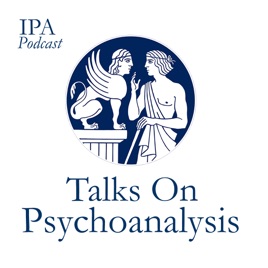
4.7
17
87
Talks On Psychoanalysis
International Psychoanalytical Association

4.3
191
292
Paranormal Almanac
Curt Sandvig
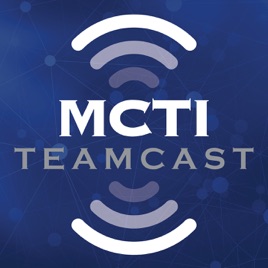
4.8
95
42
Teamcast
Mission Critical Team Institute

4.9
11
37
PsychCrunch
The British Psychological Society Research Digest
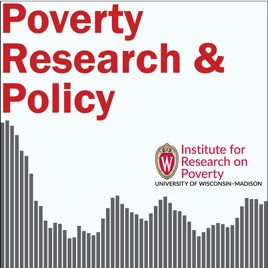
4.9
24
100
Poverty Research & Policy
Institute for Research on Poverty
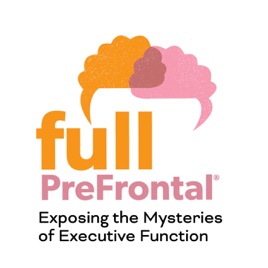
4.7
44
205
Full PreFrontal
Sucheta Kamath
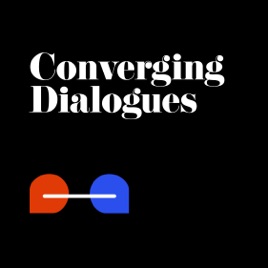
4.8
41
311
Converging Dialogues
Converging Dialogues
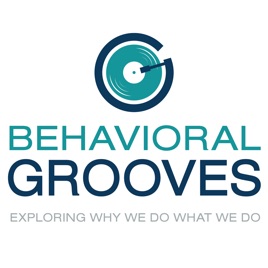
4.9
95
395
Behavioral Grooves Podcast
Kurt Nelson, PhD and Tim Houlihan
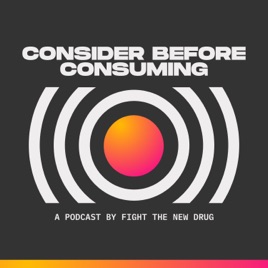
4.9
704
124
Consider Before Consuming
Fight the New Drug



